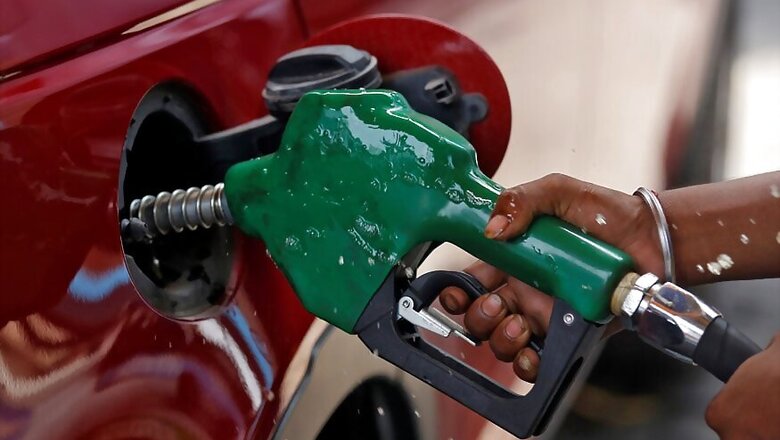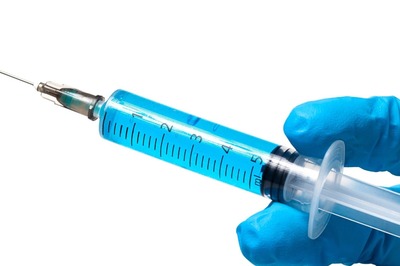
views
A government-appointed expert committee recommending scrapping of the Rs 2,000 crore investment norm for a licence to set up petrol pumps will help enhance competition in the growing domestic market for auto fuels, ICRA said Tuesday.
At present, to obtain a fuel retailing licence in India, a company needs to invest Rs 2,000 crore in either hydrocarbon exploration and production, refining, pipelines or liquefied natural gas (LNG) terminals. The recommendations "would increase the competition levels for the PSU oil marketing companies (OMCs) who currently are dominant in the sector," ICRA said in a statement.
The five-member expert committee on easing of fuel retailing licensing rules in its report last month said the requirement of authorisation from the central government to market petrol and diesel should continue as they are "sensitive, essential and safety-related commodities" and their supply requires "some degree of control" to "ensure compliance to safety, customer service, and universal service obligations". It, however, wanted the Rs 2,000 crore investment requirement for a retailing licence to be done away with.
"For the companies operating in the oil and gas sector who have made or propose to make large investments in this sector, marketing right for transportation fuels does not appear to be an incentive. Hence, the continuation of extant investment criterion for marketing authorisation to only the oil and gas companies is likely to deprive the market of participation from companies which may not be making huge investments in oil and gas sectors but may have varied offerings to make the market more customer-oriented," the panel said.
Recommending that the investment criterion for the grant of marketing authorization should be done away with completely, it said this should be replaced with a norm that only filters the applicants from the perspective of their credentials/ability to perform. The new entrants would have to set up a minimum of 100 retail outlets over a seven-year period, of which 5 per cent retail outlets are to be set up in specified remote areas. ICRA said despite the government allowing private players to enter into the business of marketing transportation fuels in 2002, only nine new entrants have been granted authorization to market transportation fuels since then. The non-PSU OMCs have gradually increased their share of retail outlets in the country from 6 per cent of the total retail outlets as on March 31, 2013 to more than 10 per cent as on March 31, 2019.
K Ravichandran, Senior Vice-President and Group Head, Corporate Ratings, ICRA, said: "The recommendations of the Expert Committee are a step in the right direction to enhance competition in the growing domestic market for auto fuels and thereby possible service levels as well as geographic reach." "Newer players who may not have huge investments in the oil and gas sector but otherwise have customer-centric businesses and have an expertise in providing high-quality service levels to retail or bulk consumers would be encouraged to participate in the auto fuel retail sector," he said.
ICRA said the recommendations would increase the competition levels for the PSU OMCs who currently are dominant in the sector. Abhishek Dafria, Vice President and Co-Head, Corporate Ratings, ICRA commented, "The domestic auto fuel market is in great need of new entrants and healthy competition given the dominant position of the PSU OMCs at present along with only mild interest shown by other players. While the PSU OMCs have expanded their physical presence, their marketing margins could be under pressure with the entry of the new set of players, if the government proceeds with the recommendations of the Expert Committee, which could be a credit negative over the long term."
For private competition to deepen, stable regulatory regime on the auto fuel pricing will be imperative especially in an elevated crude oil price scenario, he said. "Excluding the private sector for any subsidy in a high oil price scenario, will destroy the investor confidence in the sector."
State-owned oil marketing companies - Indian Oil Corp (IOC), Bharat Petroleum Corp Ltd (BPCL) and Hindustan Petroleum Corp Ltd (HPCL), currently own most of 64,624 petrol pumps in the country. Reliance Industries, Nayara Energy - formerly Essar Oil - and Royal Dutch Shell are the only private players in the market but with limited presence.
Reliance, which operates the world's largest oil refining complex, has less than 1,400 outlets. Nayara has 5,128 while Shell has just 145 pumps. BP plc of UK had a couple of years back secured a licence to set up 3,500 pumps but hasn't yet started doing so. Last year, French energy giant Total in a joint venture with Adani Group announced plans to set up 1,500 petrol pumps in the next 10 years. IOC is the market leader with 27,702 petrol pumps in the country, followed by HPCL with 15,440 outlets, and BPCL with 14,802 fuel stations.

















Comments
0 comment